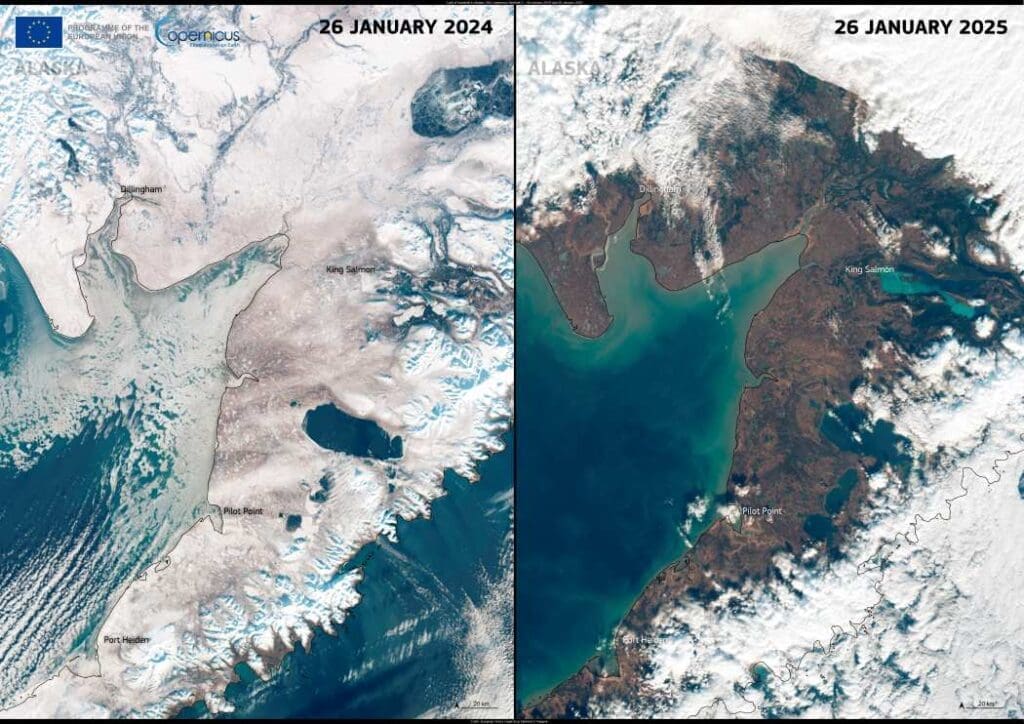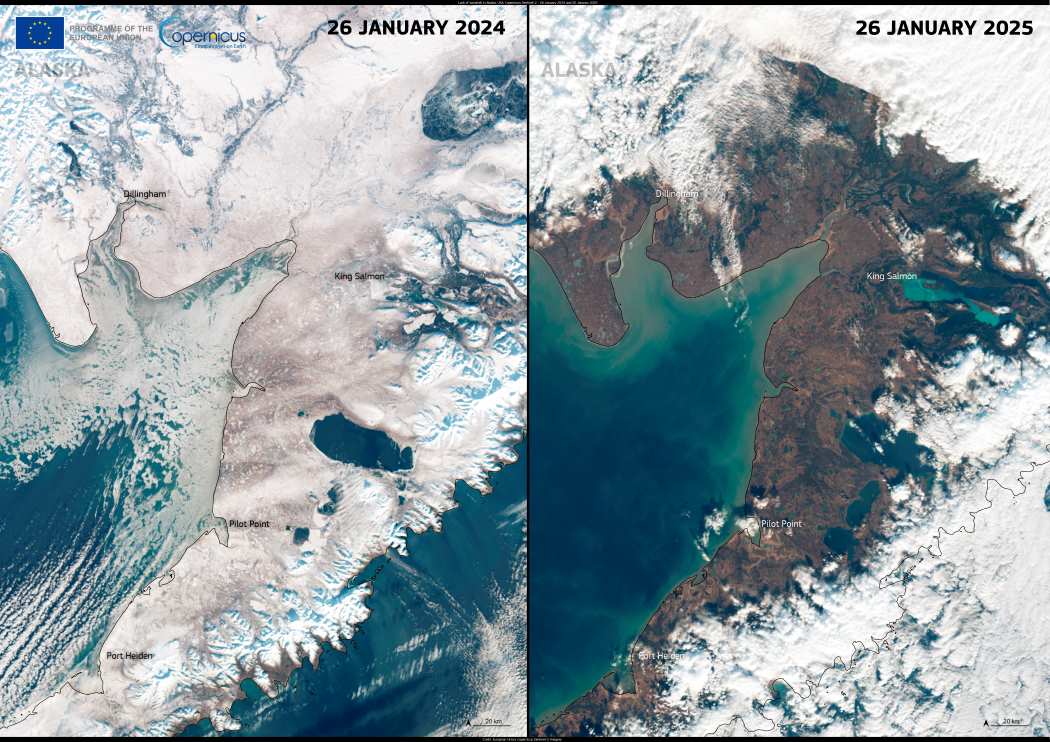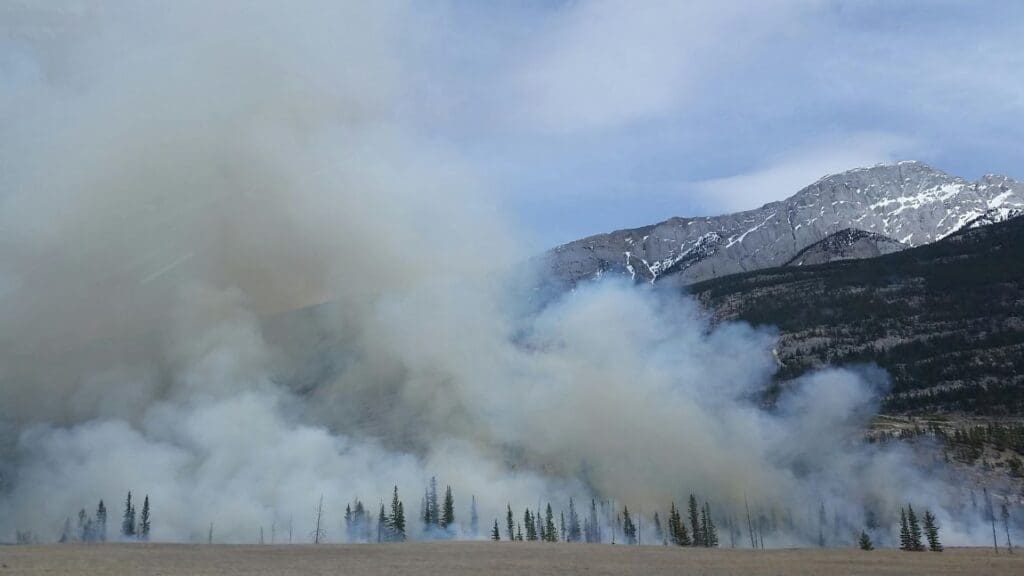Since December 2024, Alaska has experienced warmer-than-average temperatures, disrupting seasonal snowfall patterns. On January 15, 2025, Anchorage recorded an average temperature of −6.4°C, 2.4°C higher than the five-year historical average. This warming trend raises concerns about ice melt and potential flooding across the region.

Satellite images captured by Copernicus Sentinel-2 on January 26, 2024, and January 26, 2025, highlight the significant reduction in snowfall in the Lake and Peninsula Borough. The comparison reveals how unseasonable warmth is affecting Alaska’s winter landscape.
Open data from Copernicus Sentinel satellites plays a crucial role in monitoring global environmental changes like snowfall, enabling evidence-based decisions to protect ecosystems.
Featured image credit: European Union, Copernicus Sentinel-2 imagery




